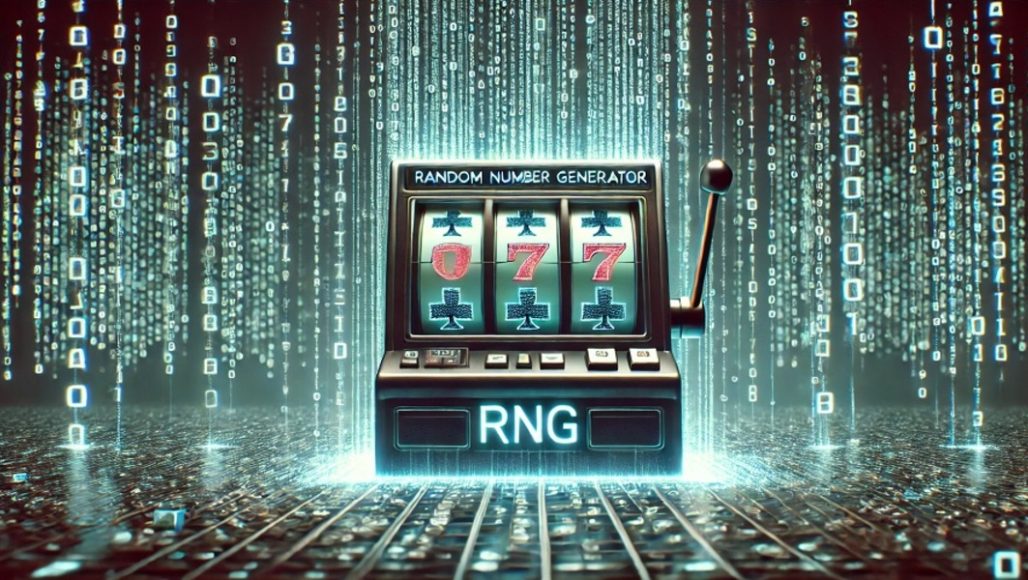RNG in Casinos: Ensuring Fairness and Integrity

Random number generators (RNGs) are essential to the operation of modern casinos, both online and offline. They ensure fairness, maintain unpredictability, and protect the integrity of games. Whether you’re spinning a virtual slot reel or betting on a digital roulette wheel, RNG technology guarantees that every outcome is as random as possible. Here’s a deeper dive into how RNGs function in casinos and why they are vital to the industry.
What is RNG in Casinos?
In the casino world, RNGs are the backbone of digital gaming. They determine the outcomes of games that require an element of randomness, such as slots, roulette, blackjack, and video poker. The use of RNGs eliminates the possibility of human interference or bias, ensuring that every game result is independent and unpredictable.
For example, in a slot machine, the RNG decides the symbols that appear on the reels after every spin. This process is instantaneous and unaffected by previous spins or player behavior. Similarly, in online card games, RNGs simulate a shuffled deck, making each draw entirely random.
How RNGs Work in Casino Games
RNGs in casinos rely on sophisticated randomization algorithms to generate unpredictable outcomes. Here’s a simplified explanation of how they work:
- Initialization with a Seed: The RNG tool starts with a seed number, which acts as the basis for generating random sequences. This seed may be derived from various sources, including the computer’s internal clock or a hardware-based randomizer.
- Generating Random Numbers: Using mathematical formulas, the RNG produces a sequence of numbers that appears random. These numbers correspond to game elements, such as slot symbols, roulette wheel positions, or card draws.
- Outcome Assignment: The generated numbers are mapped to specific game outcomes. For instance, in a slot game, the numbers determine which symbols will appear on the reels.
The entire process happens within milliseconds, making it impossible for players or operators to predict the results.
Importance of RNG in Casino Fairness
The primary role of RNGs in casinos is to ensure that all games are fair and unbiased. Here’s why RNGs are critical:
- Unpredictable Outcomes: RNGs ensure that every spin, shuffle, or draw is independent of previous outcomes, creating a genuinely unpredictable gaming experience.
- Player Trust: Fairness is crucial for player confidence. Reputable casinos often have their RNGs tested and certified by independent auditing organizations to verify that the system works as intended.
- Regulatory Compliance: Many jurisdictions require casinos to use certified RNGs as part of their licensing agreements. This regulation protects players from potential manipulation.
RNG in Slot Machines
Slot machines are the most prominent example of RNG use in casinos. Whether in a physical casino or online, every spin of the reels is determined by an RNG. Here’s how it works:
- Reel Mapping: Each number generated by the RNG corresponds to a symbol on the slot reel.
- Outcome Selection: The RNG selects symbols for each reel at the exact moment the player presses the spin button.
- Independent Spins: Each spin is independent of previous spins, meaning there’s no way to predict or influence future results.
For example, if a slot game has five reels and 10 symbols per reel, the RNG selects one symbol per reel in a completely random fashion. This process ensures that every spin is a unique event.
RNG in Table Games
In table games like roulette, blackjack, or baccarat, RNGs replicate the randomness of traditional gameplay. For instance:
- Roulette: The RNG determines the number on which the virtual roulette ball lands. Each spin is independent, just like in a physical roulette game.
- Blackjack: The RNG shuffles and deals virtual cards, ensuring the randomness of each hand.
- Baccarat: The outcome of each deal is generated without any predictable pattern, mimicking a real deck shuffle.
Testing and Certification of RNGs

To maintain fairness and comply with regulations, casinos often subject their RNGs to rigorous testing by independent auditors. These organizations use advanced statistical methods to verify that the RNG produces truly random results over millions of iterations. Common tests include:
- Chi-Square Tests: Ensures uniform distribution of outcomes.
- Runs Tests: Checks for patterns or clustering in the sequence of results.
- Diehard Tests: A suite of stringent evaluations for RNG randomness.
Certified RNGs receive seals of approval, which casinos display to reassure players of the games’ integrity.
Challenges with RNGs
While RNGs are designed to be as fair as possible, they are not entirely free from challenges:
- Predictability in PRNGs: Pseudo-random number generators (PRNGs), which rely on algorithms, can theoretically be reverse-engineered if the seed is known. However, this is highly unlikely in well-secured systems.
- Malpractice: Unscrupulous operators could potentially tamper with RNGs to favor the house, which is why regulatory oversight is critical.
The Future of RNGs in Casinos
As technology advances, so does RNG functionality. Quantum RNGs, which use quantum mechanics to achieve true randomness, are gaining traction. These systems offer enhanced security and randomness, making them ideal for high-stakes applications like online gambling.
In addition, blockchain technology is being explored as a way to ensure RNG transparency. By recording RNG processes on an immutable ledger, casinos can prove that outcomes are genuinely random and free from tampering.
Conclusion
RNGs are the lifeblood of modern casinos, ensuring fairness, transparency, and trust in every game. From the spin of a virtual slot reel to the deal of a digital blackjack hand, random number generators make every outcome unpredictable and independent. As technology continues to evolve, so will RNG tools, reinforcing their role as a cornerstone of the gaming industry. For players, understanding how these systems work can enhance trust and appreciation for the integrity of the games they enjoy.
FAQ
An RNG works by using algorithms or physical processes to produce random numbers. These numbers are then mapped to specific outcomes, such as slot machine symbols, roulette wheel positions, or card draws in a game.
RNGs ensure fairness and transparency in casino games by making every outcome unpredictable and independent of previous results. This builds trust among players and complies with regulatory standards.
True randomness is difficult to achieve digitally. RNGs can be classified as pseudo-random or true random. Pseudo RNGs use algorithms, while true RNGs rely on unpredictable physical phenomena, such as thermal noise.
Independent auditors test RNGs using statistical methods, like Chi-square tests and Diehard tests, to verify that the generated numbers are random and unbiased. Certified RNGs receive seals of approval from testing agencies.
A properly implemented and certified RNG is secure and difficult to manipulate. However, in rare cases, tampering is possible in unregulated environments, which is why reputable casinos rely on regular audits.
Yes. RNGs are essential for online casinos and are also used in electronic gaming machines in physical casinos to ensure fairness and unpredictability.
RNGs don’t change the odds of a game but ensure that every outcome is random. The odds depend on the game’s design, payout structure, and return-to-player (RTP) percentage.
PRNG (Pseudo Random Number Generator) uses algorithms to simulate randomness based on a seed value. TRNG (True Random Number Generator) generates randomness from physical phenomena, providing more genuine unpredictability.